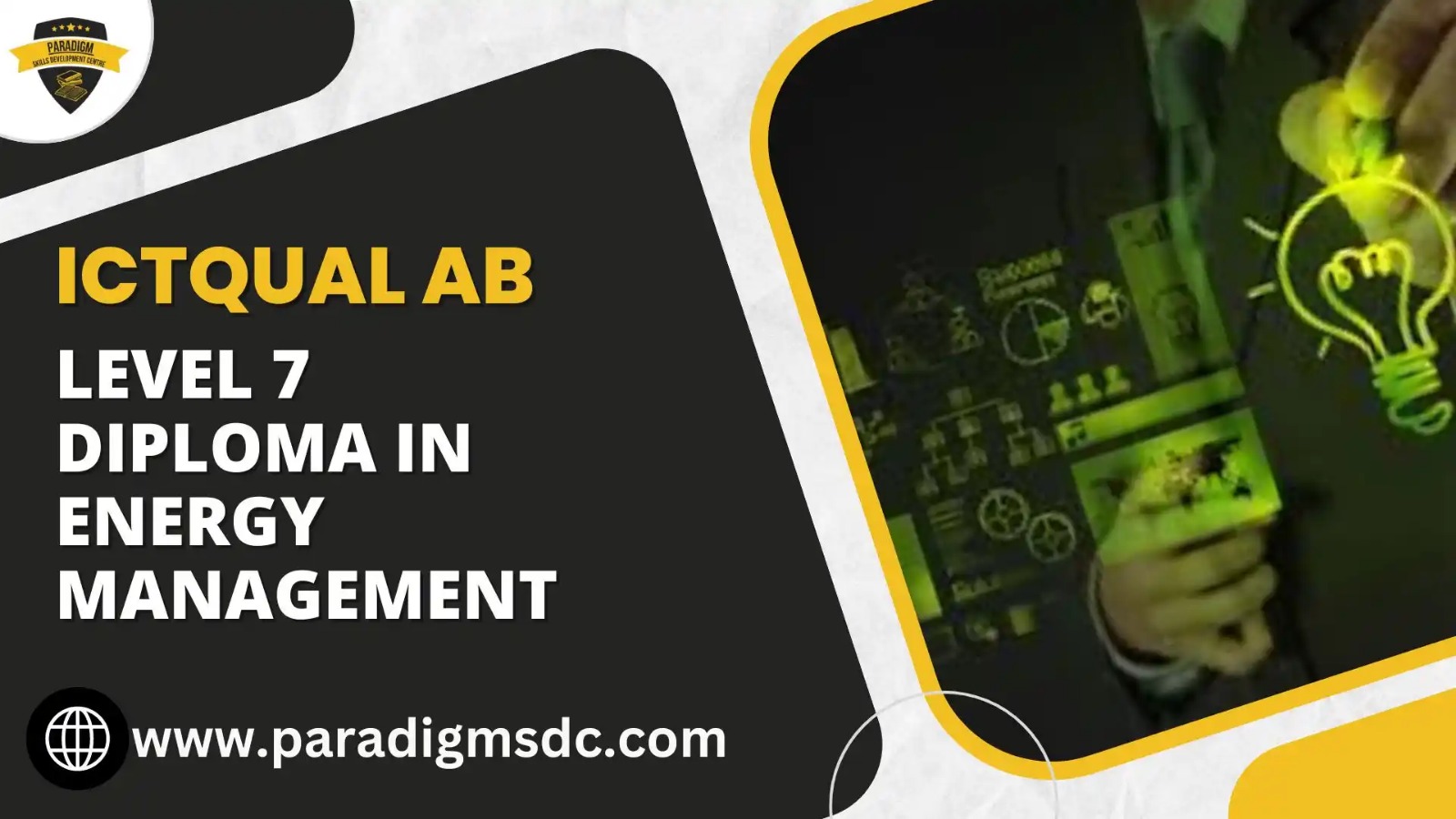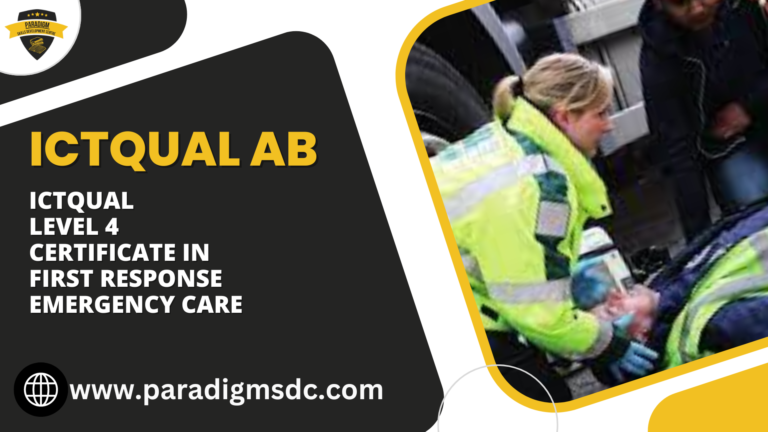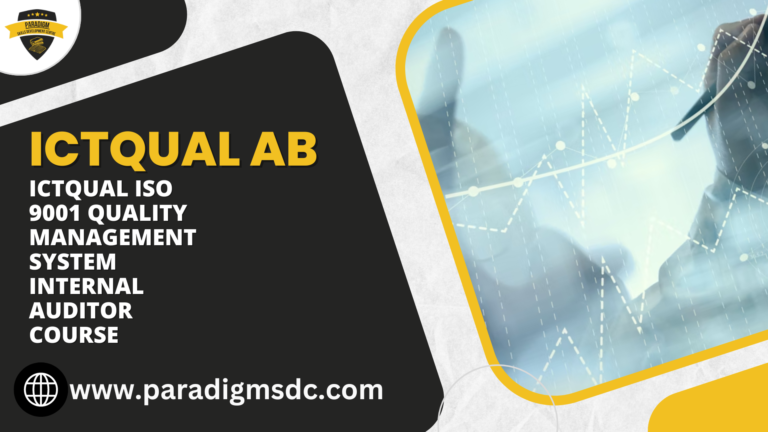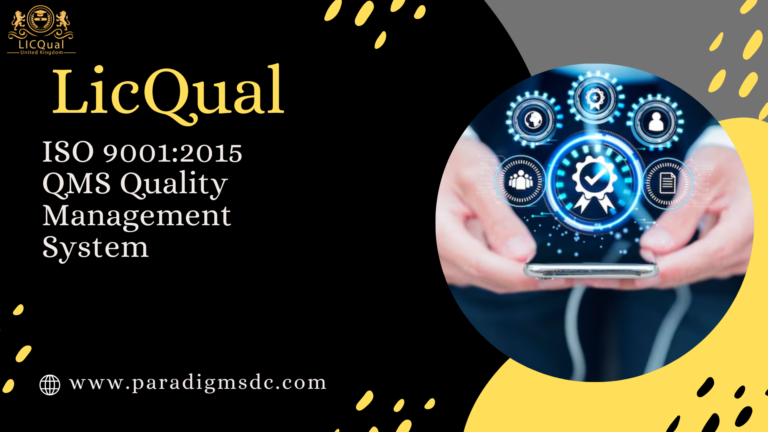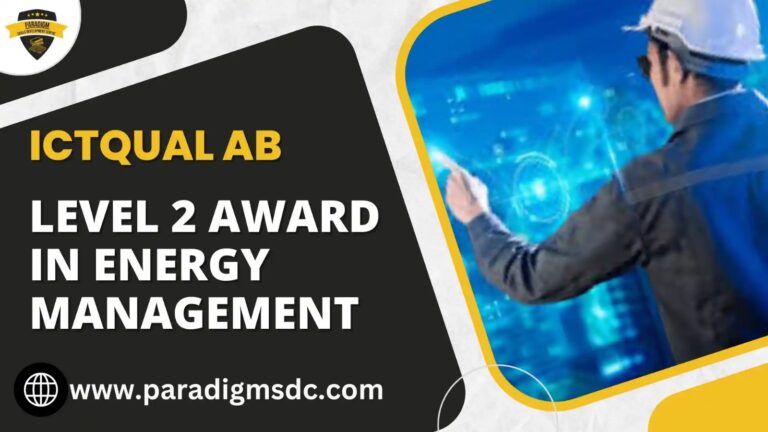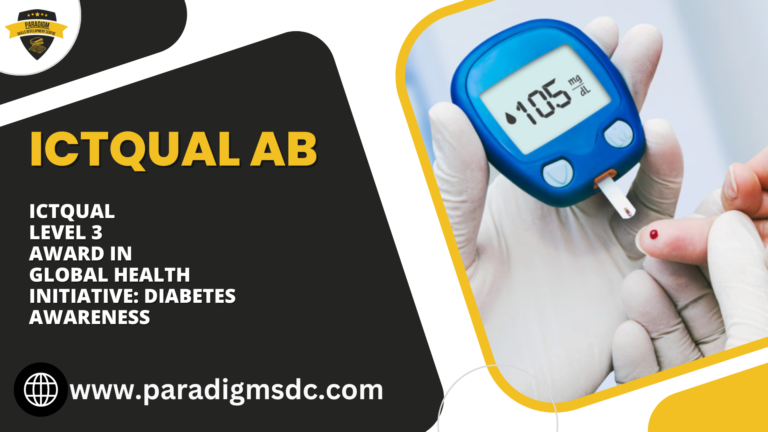Course Introduction
The ICTQual Level 7 Diploma in Energy Management is a prestigious qualification designed for professionals aiming to excel in the field of energy management. This advanced diploma equips individuals with the knowledge and skills necessary to effectively manage energy resources, reduce consumption, and promote sustainable practices within organizations.
Course Overview
The ICTQual Level 7 Diploma in Energy Management offers a comprehensive exploration of energy management principles, strategies, and technologies. Participants delve into topics such as renewable energy sources, energy efficiency measures, regulatory frameworks, and financial considerations. The course emphasizes practical applications and industry best practices to address the global challenges of energy sustainability.
Course Study Units
- Introduction to energy management
- Technical and Operational
- Behavioural Change and Motivation
- Waste Management
- Transport
- Water
- Procurement
- Information & Communications Technology
- Energy Assessments, Measurements and Verification
- Regulatory & Legal Compliance and Carbon Management
- Strategy/Plan in energy management
Learning Outcomes
Upon completion of the ICTQual Level 7 Diploma in Energy Management, participants will:
Introduction to Energy Management:
- Understand the fundamental concepts and principles of energy management.
- Identify the importance of energy conservation and efficiency in various industries and sectors.
- Explore different types of energy sources and their environmental impacts.
- Recognize the role of energy management in achieving sustainability goals within organizations.
Technical and Operational:
- Gain knowledge of energy systems, equipment, and technologies used in industry.
- Learn how to optimize energy performance through technical upgrades and operational improvements.
- Understand energy consumption patterns and identify opportunities for efficiency enhancements.
- Develop skills in implementing energy-saving measures and monitoring energy usage.
Behavioural Change and Motivation:
- Understand the psychological factors influencing energy consumption behaviors.
- Learn strategies for promoting energy-saving behaviors and motivating stakeholders.
- Explore techniques for fostering a culture of energy efficiency within organizations.
- Develop communication and engagement skills to encourage participation in energy conservation initiatives.
Waste Management:
- Learn about waste generation, handling, and disposal practices.
- Understand the environmental and economic impacts of waste production.
- Explore methods for reducing waste generation and improving waste management processes.
- Develop strategies for implementing waste reduction and recycling programs.
Transport:
- Understand the energy consumption patterns and environmental impacts of transportation.
- Learn about sustainable transportation options and alternative fuels.
- Explore strategies for reducing energy consumption and emissions in transportation systems.
- Develop skills in developing and implementing transportation management plans to optimize energy efficiency.
Water:
- Understand the importance of water conservation and efficiency.
- Learn about water management practices and technologies.
- Explore strategies for reducing water consumption and minimizing waste.
- Develop skills in implementing water-saving measures and monitoring water usage.
Procurement:
- Understand the role of procurement in energy management and sustainability.
- Learn about sustainable procurement practices and criteria for selecting energy-efficient products and services.
- Explore strategies for incorporating energy considerations into procurement decisions.
- Develop skills in evaluating suppliers and negotiating contracts to optimize energy performance.
Information & Communications Technology:
- Gain knowledge of energy usage patterns and opportunities for efficiency improvements in ICT systems.
- Learn about energy-efficient ICT technologies and strategies.
- Explore methods for reducing energy consumption in data centers, networks, and other ICT infrastructure.
- Develop skills in implementing energy-saving measures and optimizing energy usage in ICT environments.
Energy Assessments, Measurements, and Verification:
- Acquire proficiency in conducting energy audits and assessments to identify energy-saving opportunities.
- Learn methods for accurate measurement and verification of energy performance improvements.
- Understand the importance of data analysis and interpretation in evaluating energy usage.
- Develop skills in compiling energy reports and verifying energy-saving claims.
Regulatory & Legal Compliance and Carbon Management:
- Understand the regulatory framework governing energy management and environmental compliance.
- Learn about carbon management strategies and emissions reduction techniques.
- Gain knowledge of relevant environmental laws, regulations, and reporting requirements.
- Develop strategies for ensuring compliance with energy and carbon regulations.
Strategy/Plan in Energy Management:
- Develop comprehensive energy management strategies and plans tailored to organizational needs and objectives.
- Learn how to set achievable goals and targets for energy efficiency and sustainability.
- Understand the importance of stakeholder engagement and collaboration in energy management planning.
- Develop skills in resource allocation, budgeting, and project management for energy initiatives.
Course Benefits
- Expertise: Acquire specialized knowledge and skills in energy management.
- Career Advancement: Enhance career prospects in energy consulting, sustainability management, and corporate environmental responsibility.
- Industry Recognition: Gain a prestigious qualification recognized internationally.
- Practical Application: Apply theoretical knowledge to real-world energy challenges.
- Networking: Connect with industry leaders and professionals in energy management.
Who is this Course For?
This course is ideal for:
- Energy managers and consultants seeking advanced skills and credentials.
- Sustainability professionals focusing on energy efficiency and renewable energy.
- Engineers and technical professionals involved in energy auditing and management.
- Government officials and policymakers in energy and environmental sectors.
- Professionals aspiring to lead sustainable energy initiatives in organizations.
Future Progression
Upon completing the ICTQual Level 7 Diploma in Energy Management, participants can pursue various career and educational pathways, including:
- Leadership roles in energy management and sustainability departments.
- Advanced studies in environmental management, renewable energy, or sustainable development.
- Consulting opportunities in energy efficiency, renewable energy projects, or carbon management.
- Participation in research and policy development addressing global energy challenges.
Investing in the ICTQual Level 7 Diploma in Energy Management signifies a commitment to driving sustainable energy practices and addressing global energy challenges. By acquiring advanced skills and knowledge, graduates are well-positioned to lead organizations towards energy efficiency, cost savings, and environmental stewardship in a rapidly evolving energy landscape.

